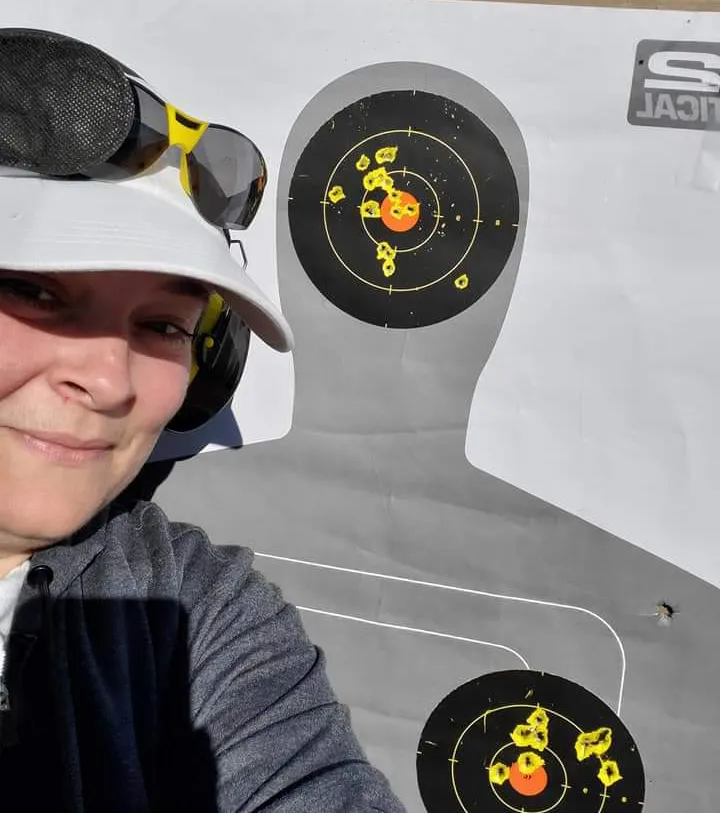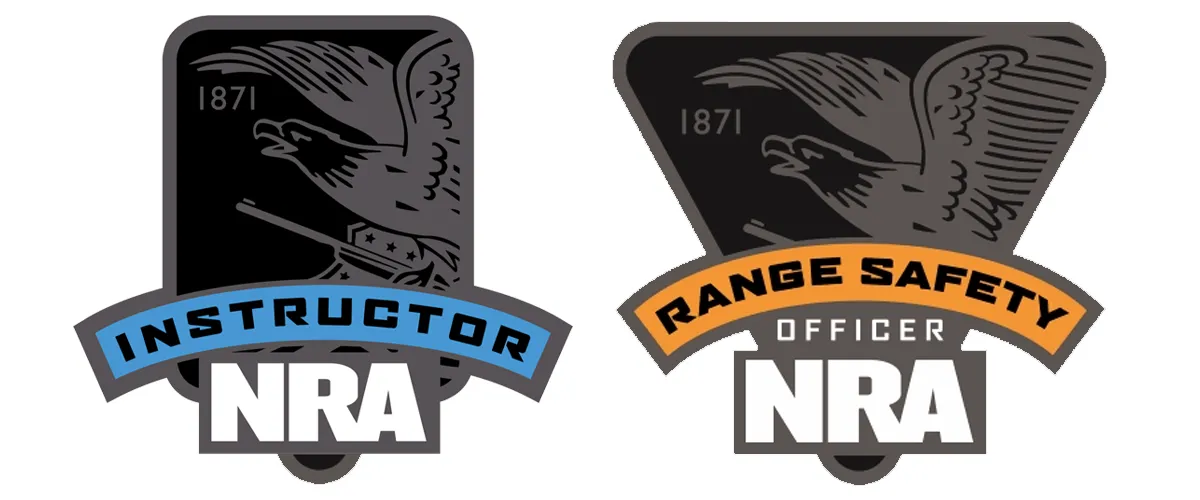
FIREARMS TRAINING
WITH YOUR PEACE IN MIND
FIREARMS SAFETY & INSTRUCTION COURSES

ETA Firearms is your go-to choice for gun safety classes in Arizona. We also educate for concealed weapon permits, tactical training and more.
Firearms safety courses teach important safety practices and procedures to help prevent accidents and injuries when handling firearms. Being knowledgeable and trained in safe handling techniques can help reduce the risk of accidental discharges and injuries to yourself and others.
NRA CERTIFIED INSTRUCTORS
USCCA CERTIFIED INSTRUCTORS
WOMEN INSPIRED COURSES
ACTIVE SHOOTER TRAINING
FIRST AID COURSES
CONCEALED CARRY WEAPONS
REAL ESTATE AGENT SAFETY
LED CLASSES
It's not only about the novelty of shooting or owning a "gun". It's about our obligation to protect and freely exercise our 2nd Amendment right. We offer a variety of courses created by licensed instructors that teach respect, safety, responsibility and the legal requirements necessary to own and possess a personal firearm in Arizona.



OUR TRAINING COURSES & CLASSES
Taking a firearms safety course is an important step in being a responsible firearms owner and protecting your assets, yourself, and others. It can help you develop the knowledge, skills, and mindset necessary to safely and confidently handle firearms in a variety of situations.
NEW GUN OWNER TRAINING PROGRAM
1:1 & GROUP TRAINING AVAILABLE
SPECIALTY CLASSES & COMBO COURSES
WOMEN ONLY COURSES
CUSTOM CREATED COURSES & GROUPS
Schedule a free consultation here:
Stay Informed Through our Blog

Empowering Volunteers: Training and Mobilizing Security Teams in Religious Institutions and Commercial Establishments

Empowering Volunteers: Training and Mobilizing Security Teams in Religious Institutions and Commercial Establishments
Introduction
In today's world, security is a crucial concern for both religious institutions and commercial establishments. Volunteers often play a key role in maintaining safety and order within these spaces. This guide explores effective strategies for training and mobilizing security teams comprised of volunteers.
1. Understanding the Role of Volunteers
- Community Engagement: Volunteers bring a unique connection to their communities, enhancing trust and cooperation.
- Diverse Skill Sets: Many volunteers possess valuable skills that can be leveraged for security purposes, including first aid, conflict resolution, and emergency response.
2. Training Program Development
- Needs Assessment: Evaluate the specific security needs of the institution or establishment. Consider potential risks and vulnerabilities.
- Curriculum Design: Develop a comprehensive training program that covers:
- Basic Security Protocols: Access control, surveillance, and emergency procedures.
- De-escalation Techniques: Training on how to handle conflicts calmly and effectively.
- First Aid and CPR: Essential for responding to medical emergencies.
- Crisis Management: Preparing for natural disasters, active shooter situations, or other crises.
3. Training Delivery Methods
- Workshops and Seminars: Interactive sessions to engage volunteers and facilitate learning.
- Online Training Modules: Flexible options for those with scheduling conflicts. Ensure they include assessments to gauge understanding.
- Scenario-Based Training: Conduct drills and simulations to practice responses to various security scenarios.
4. Building a Supportive Environment
- Fostering Team Spirit: Create a culture of camaraderie and collaboration among volunteers. Regular team-building activities can strengthen relationships.
- Recognition and Appreciation: Acknowledge the efforts of volunteers through awards, public recognition, or small tokens of appreciation.
5. Mobilizing Security Teams
- Clear Communication Channels: Establish protocols for communication before, during, and after events. Utilize apps or group messaging platforms for quick updates.
- Role Assignments: Define clear roles and responsibilities for each team member to ensure accountability and effectiveness.
- Regular Meetings: Hold regular briefings to review protocols, share experiences, and address concerns.
6. Collaborating with Local Authorities
- Partnerships: Build relationships with local law enforcement and emergency services to enhance support and training opportunities.
- Emergency Planning: Involve local authorities in developing emergency response plans tailored to the institution's specific context.
7. Continuous Evaluation and Improvement
- Feedback Mechanisms: Implement methods for volunteers to provide feedback on training effectiveness and security practices.
- Regular Updates: Stay informed about emerging security threats and update training programs accordingly.
Conclusion
Empowering volunteers through effective training and mobilization not only enhances security in religious institutions and commercial establishments but also fosters a sense of community. By investing in their volunteers, organizations can create safer environments while building stronger connections within their communities.
Monday through Sunday
By appointment only
Copyright © 2024 E.T.A. FIREARMS | All Rights Reserved





